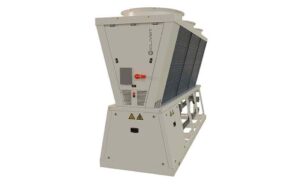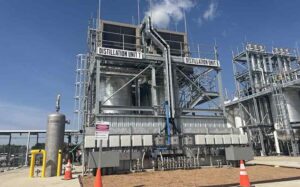Suppliers must pass on carbon tax savings
21st July 2014
AUSTRALIA: The air conditioning and refrigeration industry has been warned to pass on all refrigerant cost savings following the repeal of Australia’s carbon tax.
The Australian Competition and Consumer Commission has advised companies that it will take action against businesses that supply regulated goods which fail to pass through all cost savings attributable to the carbon tax repeal.
The prices of refrigerants, particularly high GWP gases, were hit hard when the tax was introduced in 2012, some soaring in price by as much as 400%.
“When the new law takes effect and the carbon tax is repealed, these businesses must pass through all cost savings from the carbon tax repeal,” ACCC chairman Rod Sims said. “If they fail to do so, the ACCC will take enforcement action against them and seek serious penalties from the courts.”
A supplier of regulated goods that fails to pass through all cost savings attributable to the carbon tax repeal will breach the carbon tax price reduction obligation and may face court imposed penalties of up to AUS$1.1m per contravention for corporations or AUS$220,000 per contravention for an individual. The court can also issue injunctions or declarations, make compensation orders or orders setting the maximum price of a regulated good or requiring the supplier to pay refunds to consumers.
The ACCC has also said that suppliers in the key areas of electricity, natural gas or a bulk importer of synthetic greenhouse gas that engage in price exploitation will also be subject to a penalty equal to 250% of the cost savings that were not passed through. Those businesses will also be required to provide evidence to the ACCC to show that they have passed on the cost savings.
“The ACCC will be keeping a close eye on prices to make sure that all cost savings go to consumers,” Mr Sims said.
Last week’s vote in the Australian parliament to repeal the controversial tax was welcomed by end users. The Australian Food and Grocery Council (AFGC) said the speedy pass through of savings by electricity, gas and refrigerant gas suppliers to their customers would help ease the severe cost pressures on manufacturers.
“For a trade-exposed sector like food and grocery manufacturing the carbon tax was a direct hit to the competitiveness of companies putting them at a disadvantage to international competitors who were not subject to the tax,” said AFGC CEO Gary Dawson.
“Industry surveys found that food and grocery manufacturers had little or no ability to pass through the higher costs flowing from the tax and therefore took a direct hit to their viability.
“The food and grocery manufacturing sector remains committed to the environment and has demonstrated that through initiatives such the AFGC’s sustainability commitment which has set ambitious targets including a ten percent reduction in energy and 20% reduction in carbon emissions by 2020,” concluded Mr Dawson.







